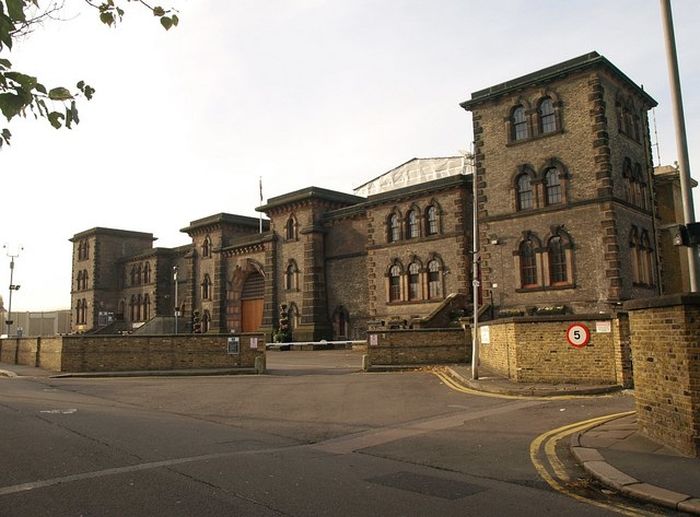No, this is not a war: the problem with military rhetoric in the time of COVID-19
Juliette Guéron-Gabrielle argues that the recurrent use of military rhetoric obscures the real nature of the challenge we are facing with COVID-19
The comparison between wartime and the coronavirus pandemic saturates the media, government briefings and conversations alike. The idea of war is invoked as a justification for leaders’ new emergency powers, economic stimulus plans and to convey a sense of emergency. In official discourses, the metaphor blends with more practical commitments to increase the role of the army in the campaign against the virus. French president Emmanuel Macron announced his country’s confinement in front of a military hospital, repeating “we are at war” six times in twenty minutes discourse. He announced the army would be conducting a new operation to help alleviate the crisis: operation ‘Resilience’.
“...in our globalised and connected world, what happens in one country can impact the globe.”
Macron’s speech acted as if to frame him as a wartime leader, a sort of modern Charles de Gaulle. But this is a problematic stance to adopt, and wartime comparisons undermine the strength of our democracies: wartime calls for the centralisation of power, and favours the rule of charismatic strongmen to the intricacies of parliamentary life. A pandemic should not do the same.
The coronavirus presents an existential, harrowing threat to human life. It is a tragedy we are unsure how to deal with. However, we must not let military rhetoric mislead us: there will be no coming out of this crisis victorious. Historian of science Bruno Latour stressed the way humans never win against a virus: they learn to live alongside it. We will not win against coronavirus, just like we never won against the flu.
There is no imperative to sanctify government action, and to suspend political scrutiny and mechanisms of accountability. Lively political debate and the fight for free press and quality information must continue. These elements hold leaders accountable – like The New York Times serving as a counterbalance to Donald Trump’s initial downplaying of the crisis. Many an autocratic leader is taking advantage of this crisis to constrain the press and restrict parliamentary activity, from Viktor Orban in Hungary to Rodrigo Duterte in the Philippines.
“The solution to the pandemic lies in civilian courage [...] rather than in military bravado.”
Even in healthy democracies, wartime rhetoric intimidates those who want to criticise their government’s handling of the crisis. It inhibits political debate at a time where we need a transparent decision-making process most. The slowness of Boris Johnson to confine the UK was widely disapproved of by the citizens and criticised by organisations such as the World Health Organisation (WHO), in what seemed an out-of-touch leadership. Livelier political debate might have achieved earlier confinement.
The wartime metaphor is troubling because it sets the scene for xenophobic and identitarian reactions to the crisis. Finding the fight against an invisible virus not compelling enough, some leaders like Donald Trump stress the foreign nature of the virus. This kind of rhetoric feeds into the rampant xenophobia seen in the spike in racism experienced by the Asian community since the virus first appeared.
Identitarian reactions forget that, in our globalised and connected world, what happens in one country can impact the globe. They forget our common humanity. In this time of peace, it makes no sense to appropriate war’s Manichaean division between us, the members of the nation, and them, the menacing outside world.
Writer Albert Camus offered a well-known allegory of war as a pandemic in his novel, The Plague. Published in 1947, Camus used a fictional outbreak of the plague in Oran to make sense of the Nazi occupation of Europe. He used the setting of a plague to detail the reactions of the civilians: those who resisted and fought the plague, and those who did not.
The lived experience of wars and epidemics bear similarities: a feeling of the absurd, of powerlessness, and retreat to the inside world in fear of the exterior. But the comparison can only go so far. Camus was decried for naturalising the human evil of fascism. What he stressed in The Plague, however, is that if a plague is a natural occurrence, society’s reaction to it is political. Humans can react like the army of rats who collaborate with the virus, or they can be like Doctor Rieux and Tarroux, who continue to live their lives alongside the same ideals that animated them previously to the crisis. In the same way, we can react to the coronavirus as if we were at war, with military rhetoric and militaristic values. Or we can strive to maintain civil society, keeping accountability and debate alive.
The solution to the pandemic lies in civilian courage – the courage of doctors, nurses, cashiers; the courage of those who respect confinement – rather than in military bravado. Wartime rhetoric makes us forget that we are all in this together. And that we do not need to suspend politics to get through this crisis – on the contrary.
 Comment / Cambridge students are too opinionated 21 April 2025
Comment / Cambridge students are too opinionated 21 April 2025 Interviews / Meet the Chaplain who’s working to make Cambridge a university of sanctuary for refugees20 April 2025
Interviews / Meet the Chaplain who’s working to make Cambridge a university of sanctuary for refugees20 April 2025 News / News in brief: campaigning and drinking20 April 2025
News / News in brief: campaigning and drinking20 April 2025 Comment / Cambridge’s tourism risks commodifying students18 April 2025
Comment / Cambridge’s tourism risks commodifying students18 April 2025 Comment / Does the AI revolution render coursework obsolete?23 April 2025
Comment / Does the AI revolution render coursework obsolete?23 April 2025





